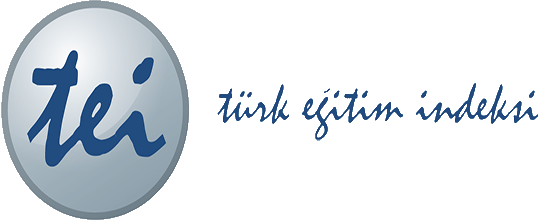RUSSIA’S AGGRESSION ON UKRAINE AS A CATALYST FOR CHANGE OF SWEDEN’S NEUTRALITY POLICY IN ARMED CONFLICTS AND THE COUNTRY’S ACCESSION TO NATO
DOI:
https://doi.org/10.32689/2617-9660-2022-5(23)-9-22Keywords:
Sweden, Ukraine, NATO, neutrality policy, security policy, non-alignment, Russia.Abstract
Abstract: The policy of neutrality successfully served Sweden for more than two centuries. It was a pragmatic policy with certain degree of flexibility, rather than a dogmatic one, and its usefulness was in principle not questioned, neither by politicians, nor its citizens. After WW2, when concessions regarding the upholding of the neutrality were made to keep the country outside the conflict, Sweden officially continued to pursue the doctrine of “non-alignment in peacetime aiming to neutrality in war”. At the same time, Sweden developed, in concealment and without public knowledge, a wide range of security and military cooperation with the North Atlantic Alliance and its member states, including technology and intelligence exchange. Today’s dramatically changed European security situation has clearly proven that a policy of non-alignment is no longer sufficient and that a strong national defence is also not enough. The security cooperation with the Nordic countries and NATO members does not offer necessary guarantees to keep the country safe. Only full NATO membership provides such guarantees. The Russian aggression on Ukraine was the direct catalyst for a radical and surprisingly swift change of Sweden’s security policy, demonstrating the essentially pragmatic approach to the policy of neutrality. Only a few weeks after the invasion, a large majority of the parliamentary parties stood behind the government’s decision to apply for NATO membership. The purpose of this article is to briefly portray the historical and geopolitical background, the development, and the reasoning of Sweden’s long history of neutrality policy, as well as present the causes that directly influenced the change of this policy and the implications of Sweden’s NATO accession for the country’s security policy.
References
Agrell, W. (1991), Den stora lögnen : ett säkerhetspolitiskt dubbelspel i alltför många akter, Ordfont.
Bildt, C., (2022) Are Sweden and Finland moving to apply for NATO membership, The Washington Post, 16 March, https://www. washingtonpost.com/ opinions/2022/03/16/ are-sweden-finland-moving-apply-nato- membership/ (08.10.2022).
Domagalski, J. (2019), Współpraca regionalna w polityce bezpieczeństwa Szwecji, Wydawnictwo Adam Marszałek
Engelbrekt, K. (2011), From Neutrality to Solidarity: Swedish Security Policy after EU Accession, unpublished paper, https://www. researchgate.net/publica tion/256041749_ From_Neutrality_to_Solidarity_Swedish_Security_ Policy_after_EU_Accession (15.09.2022)
Engelbrekt, K. (2002), Security Policy Reorientation in Peripheral Europe: A Comparative Perspectivist Approach, Aldershot: Ashgate
Ett användbart försvar. Regeringens proposition 2008/09:140, https://data.riksdagen. se/fil/6557E5D5-E368-4236-9422-B946CC3A1491 (22.09.2022)
Holmström, M. (2011), Den dolda alliansen: Sveriges hemliga NATO-förbindelser. Forskningsprogrammet Försvaret och det kalla kriget (FOKK): 28, Atlantis.
Munch-Petersen, T. (1996), The Policy of 1812: Swedish foreign policy from the Congress of Vienna to the outbreak of the Crimean War, Northern Studies, Vol. 31, p. 37-58.
Österdahl, I. (2022), Sveriges ansökan om Natomedlemskap, Svensk Jurist-tidning (preprint, 1 September), https://svjt.se/content/ sveriges-ansokan-om-natomedlemskap (08.10.2022).
Partnership for Peace: Framework Document Issued by the Heads of State and Government participating in the Meeting of the North Atlantic Council, 11 January 1994, https://www.nato.int/cps/en/natohq/ official_ texts_24469.htm (21.08.2022).
Regeringens deklaration vid 2022 års utrikespolitiska debatt i riksdagen freda-gen den 10 juni 2022, https://www.regeringen.se/49ce43/ globalassets/regerin gen/bilder/utrikesdepartementet/ utrikesministern/utrikesdeklarationen- juni-2022.pdf (10.10.2022).
Report Deterioration of the security environment – implications for Sweden, https:// www.government.se/49d7dd/contentassets/ 05ffb51ba6404a459d7ee45c98e87a83/deterioration- of-the-security-environment---inplications- for-sweden-ds-20228 (22.09.2022).
Report by the Inquiry on Sweden’s International Defence and Security Cooperation, Säkerhet i ny tid (Security in a New Era), https:// data.riksdagen.se/fil/ 1518EBFC-5EAD-42D1- 8EFF- 1797F2B5FDF4 (22.09.2022).
Sveriges medlemskap i NATO, https:// www.regeringen.se/4a8001/contentas sets/ c09db34a30fa40468cbe7663c51b4d58/ promemorian-sveriges-medlemska p-i-natods- 202224 (10.10.2022)
Szczepaniak, B. (2017), Partnerstwo NATO-Szwecja, Świat idei polityki, Vol. XVI, p. 258-275.
Totalförsvar i förnyelse, Prop. 1995/96:12, https://www.riksdagen.se/sv/doku ment-lagar/dokument/proposition/totalforsvar- i-fornyelse_GJ0312/html (10.10.2022)










